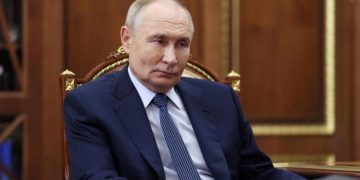Belem (Brazil): United Nations climate talks appeared to be nearing a conclusion after spilling into overtime Saturday, with a result likely to disappoint countries and advocates for stronger action to wean the world from the coal, oil and gas that is heating the planet.
Several observers told The Associated Press that the general framework of a deal is formed, but some sticking points still remain. The conference’s leaders are aiming for a late morning meeting with all nations to approve the deal. That’s a place where some nations could try to scuttle it if they prefer no deal to what they consider a feeble agreement.
“The deal informally is there from what we know,” said former Philippines negotiator Jasper Inventor, now at Greenpeace International. “It’s a weak outcome.”
COP30 President Andre Correa do Lago told Amazonia Vox on Saturday morning that there is a deal that will take a while to explain because so much is in it. But a proposal for a road map to transition away from fossil fuels — which more than 80 countries called for, as did Brazil’s president — will not be in there. Instead, a fossil fuel transition plan will be in a separate proposal issued later by do Lago’s team that won’t carry the same weight as a deal accepted by nations at the United Nations conference.
The annual talks this year are being held in Belem, a Brazilian city on the edge of the Amazon rainforest. They were scheduled to wrap up on Friday, but negotiators blew past that deadline and worked through the night.
Financial aid and other key issues
Some of the biggest issues negotiators have worked on include how to distribute USD 300 billion a year — a sum previously agreed upon — in financial aid for vulnerable countries hit hardest by climate change, getting countries to toughen up their national plans to reduce Earth-warming emissions and dealing with climate trade barriers. Poorer nations have requested a tripling of financial aid for adapting to extreme weather and other climate change harms, and observers said a version of that appears to be in the deal.
The United Nations and host Brazil are also touting dozens of “action plans” to make progress on past deals.
Whatever deal is proposed still needs a consensus approval from what’s left of the nearly 200 nations that came to the two-week conference. Some delegates, observers and others had to leave Saturday morning when the cruise ships lodging them set sail.
Earlier this week, Lago issued what he had hoped to be a final proposal. It was roundly criticised by the European Union, small island nations and Latin American countries as too weak on fossil fuels and pushing nations to sharpen their new climate-fighting plans. But other countries, including Saudi Arabia, pushed back against the call to transition away from fossil fuels.
Brazilian President Luiz Inacio Lula da Silva had pushed for a stronger plan to move away from fossil fuels, as did more than 80 countries. But the earlier proposal by do Lago — a Lula appointee — didn’t even mention the words “fossil fuel.”
Striking a final deal
Agreements coming out of COP30 technically have to be approved by consensus. But in the past, individual countries’ objections have been overlooked by the chair in the rush to gavel everything to the end.
One of the loudest proponents of a stronger plan to transition from fossil fuels is the European Union, which is harder to overlook because of its size and wealth. It’s not clear how far the EU, or countries such as Colombia and small island nations, would take their objections during Saturday’s meetings.
“It’s a question of how far they will push it,” the Inventor said.
One of the points that negotiators will highlight is language sprinkled in the document that won’t be an explicit road map away from fossil fuels, but will refer back to previous agreements to maintain momentum and “live and fight another day,” said Alden Meyer, a veteran analyst for the European think-tank E3G.
It’s not enough, Greenpeace’s Inventor said: “We need to reflect on what was possible and what now appears to be missing: the road maps to end forest destruction and fossil fuels and an ongoing lack of finance.
AP






































